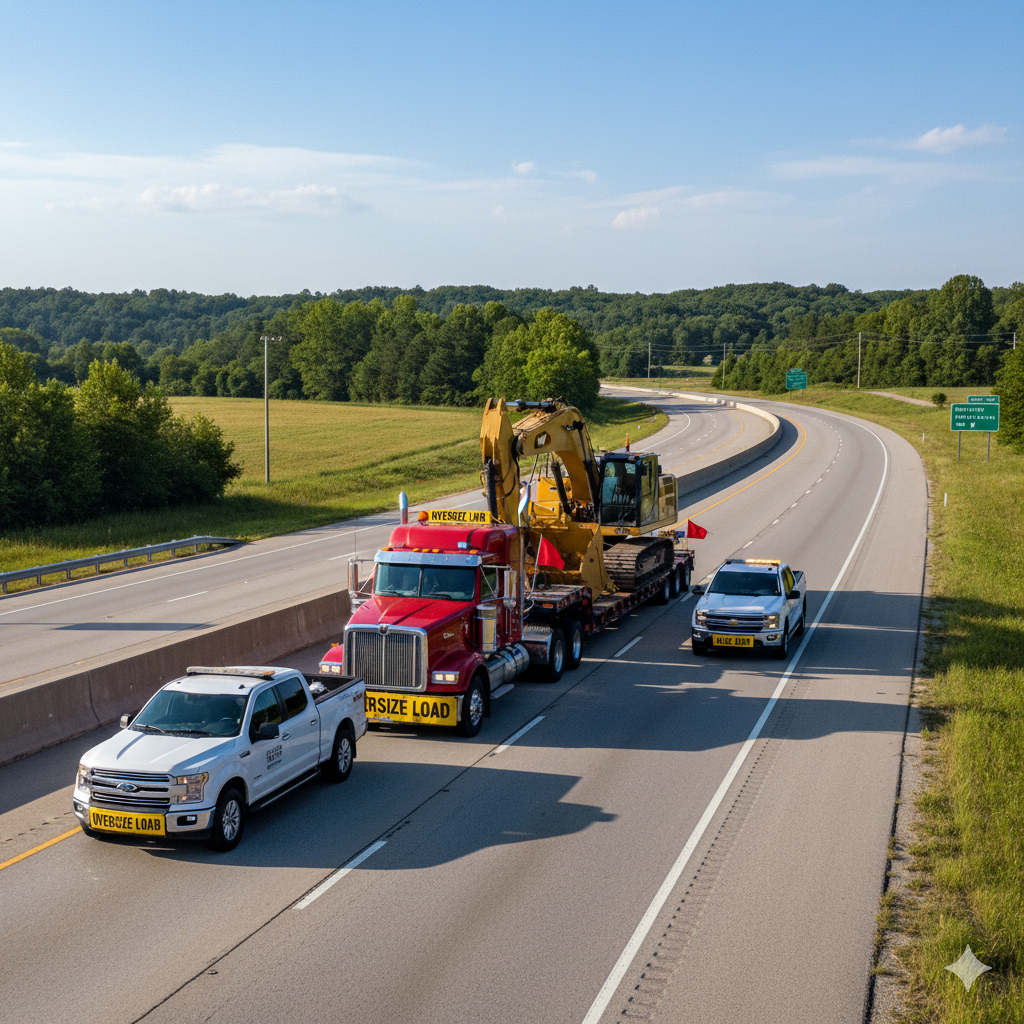If you’re hauling oversized freight across Alabama, navigating the regulatory landscape can feel like trying to steer a 48-foot trailer through a hedge maze. That’s where Alabama oversize permits come in—they’re your golden ticket to moving heavy and wide loads legally, safely, and efficiently. Whether you’re transporting construction machinery through Birmingham’s busy corridors or making a rural trek across small-town highways, understanding the ins and outs of Alabama’s permitting system is essential.
Reliable Permit Solutions has been helping commercial carriers tackle these complexities for years, ensuring that your Alabama oversize permits are obtained without headaches, delays, or penalties.
Why Alabama Oversize Permits Matter
Alabama oversize permits authorize commercial vehicles to exceed standard legal dimensions or weight limits on state highways. Without them, your load could be subject to steep fines, forced rerouting, or even impoundment.
Common scenarios requiring these permits include moving heavy construction equipment, modular homes, or industrial machinery. Proper permitting ensures your business operates smoothly while protecting public safety and infrastructure.
Understanding Alabama Size and Weight Limits
Alabama enforces specific size and weight restrictions to maintain road safety and infrastructure integrity. Standard legal dimensions include:
- Height: 13’6”
- Width: 8’6”
- Trailer Length: 48’
The legal gross vehicle weight limit is 80,000 pounds. When your load exceeds these parameters, Alabama oversize permits are mandatory. Differentiating between oversize and overweight classifications is crucial—oversize generally refers to length, width, or height, while overweight deals strictly with weight.
Beyond dimensions, Alabama has route restrictions, bridge limitations, and local ordinances that require careful planning. Alabama DOT oversized load requirements may include pilot car mandates, specific travel windows, or signage obligations, depending on your vehicle’s size.
Types of Alabama Oversize Permits
Alabama offers several permit types, tailored to different hauling needs:
- Single Trip Permits – Ideal for one-time moves.
- Annual Permits – For frequent haulers, reducing repetitive paperwork.
- Superload Permits – For extreme dimensions, often requiring detailed route analysis.
- Emergency Permits – For time-sensitive projects, like disaster recovery or urgent construction.
Reliable Permit Solutions helps determine which permit aligns best with your load, ensuring compliance without unnecessary fees.
Alabama Oversize Permit Requirements
Applying for an Alabama oversize permit isn’t just about filling out a form. You’ll need:
- Vehicle specifications (length, width, height, weight)
- Route planning information, including bridges and overhead clearance
- Insurance documentation
- Load descriptions
Proper documentation prevents delays and reduces the risk of permit denial. Missing information or inaccurate measurements is one of the most common mistakes carriers make.
Alabama-Specific Regulations
Traveling in Alabama with oversized loads comes with rules you can’t ignore:
- Time Restrictions: Many loads cannot travel during rush hours or nighttime.
- Holiday/Weekend Restrictions: Certain permits are invalid on major holidays.
- Weather-Related Restrictions: Flooding or snow can halt movement.
- Escort Vehicles: Required for loads over specific dimensions.
- Signage/Flags: Oversize loads must be marked according to ALDOT standards.
Reliable Permit Solutions provides guidance to navigate these regulations without costly setbacks.
Costs of Alabama Oversize Permits
Permit fees vary depending on load dimensions, route, and travel frequency:
- Base permit fees for single trips
- Additional charges for extreme width, length, or height
- Escort vehicle costs
- Bridge analysis or route-specific fees
By using a professional service like Reliable Permit Solutions, carriers often save money by avoiding unnecessary permit upgrades and optimizing routes.
How to Apply for Alabama Oversize Permits
The Alabama Department of Transportation (ALDOT) allows online applications for most permits. Key points include:
- Standard processing times vs. expedited options
- Avoiding common errors like incomplete vehicle specs
- Understanding which corridors or routes are pre-approved
Reliable Permit Solutions handles the submission process from start to finish, reducing administrative burden and ensuring fast approvals.
Route Planning and Compliance
Major corridors like I-65, I-20, I-59, and I-85 are common for oversized loads, but local restrictions, bridge weight limits, and clearance issues must be considered. Professional route planning ensures compliance with all Alabama oversize load restrictions, reducing risks of fines or detours.
Noncompliance can lead to significant penalties. ALDOT enforces strict checks, and operating without valid permits is risky and costly.
Partnering with Professional Permit Services
Working with experts like Reliable Permit Solutions simplifies every step:
- Expert route analysis to prevent detours
- Efficient permit acquisition
- Cost-effective planning
- Knowledge of Alabama’s complex load regulations
By leveraging their expertise, carriers can focus on business operations rather than administrative headaches.
Conclusion
Alabama oversize permits are not optional—they are essential for moving heavy, wide, or tall loads legally. Understanding size and weight limits, permit types, regulatory restrictions, and route planning will save time, money, and stress. Reliable Permit Solutions is your partner in navigating this complex process, providing guidance, compliance, and peace of mind.
When planning your next oversized haul in Alabama, start with a consultation with Reliable Permit Solutions to secure your Alabama oversize permits efficiently and confidently.

